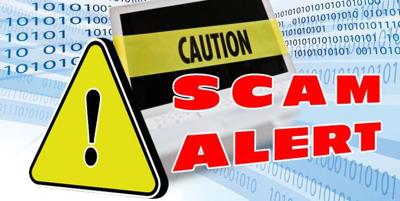(WAND) - Internal Revenue Service leaders issued a warning about scammers targeting people over economic impact payments related to COVID-19.
The IRS said tax-related fraud and identity theft are concerns. People are asked to be on the lookout for a flood of calls and email phishing attempts.
"We urge people to take extra care during this period," said IRS Commissioner Chuck Rettig. "The IRS isn't going to call you asking to verify or provide your financial information so you can get an economic impact payment or your refund faster. That also applies to surprise emails that appear to be coming from the IRS. Remember, don't open them or click on attachments or links. Go to IRS.gov for the most up-to-date information."
Emails aren't the only medium used by scammers. The public should also watch for text messages, websites and social media attempts looking for money or personal information.
“History has shown that criminals take every opportunity to perpetrate a fraud on unsuspecting victims, especially when a group of people is vulnerable or in a state of need,” said IRS Criminal Investigation Chief Don Fort. “While you are waiting to hear about your economic impact payment, criminals are working hard to trick you into getting their hands on it. The IRS Criminal Investigation Division is working hard to find these scammers and shut them down, but in the meantime, we ask people to remain vigilant.”
The IRS said scammers could:
- Emphasize the words “Stimulus Check” or “Stimulus Payment.” The official term is economic impact payment.
- Ask the taxpayer to sign over their economic impact payment check to them.
- Ask by phone, email, text or social media for verification of personal and/or banking information saying that the information is needed to receive or speed up their economic impact payment.
- Suggest that they can get a tax refund or economic impact payment faster by working on the taxpayer’s behalf. This scam could be conducted by social media or even in person.
- Mail the taxpayer a bogus check, perhaps in an odd amount, then tell the taxpayer to call a number or verify information online in order to cash it.
The public is reminded the IRS plans to deposit economic impact payments into direct deposit accounts that taxpayers provided in past tax returns. A newly-designed secure portal will allow people who haven't given the IRS their banking information to do so on IRS.gov in mid-April. Taxpayers are asked to not have anyone put direct deposit or other banking information into the portal on their behalf.
Checks will be mailed to people who do not have direct deposit information on file with the IRS.
Find more information about COVID-19 scam preparedness from the IRS here.











